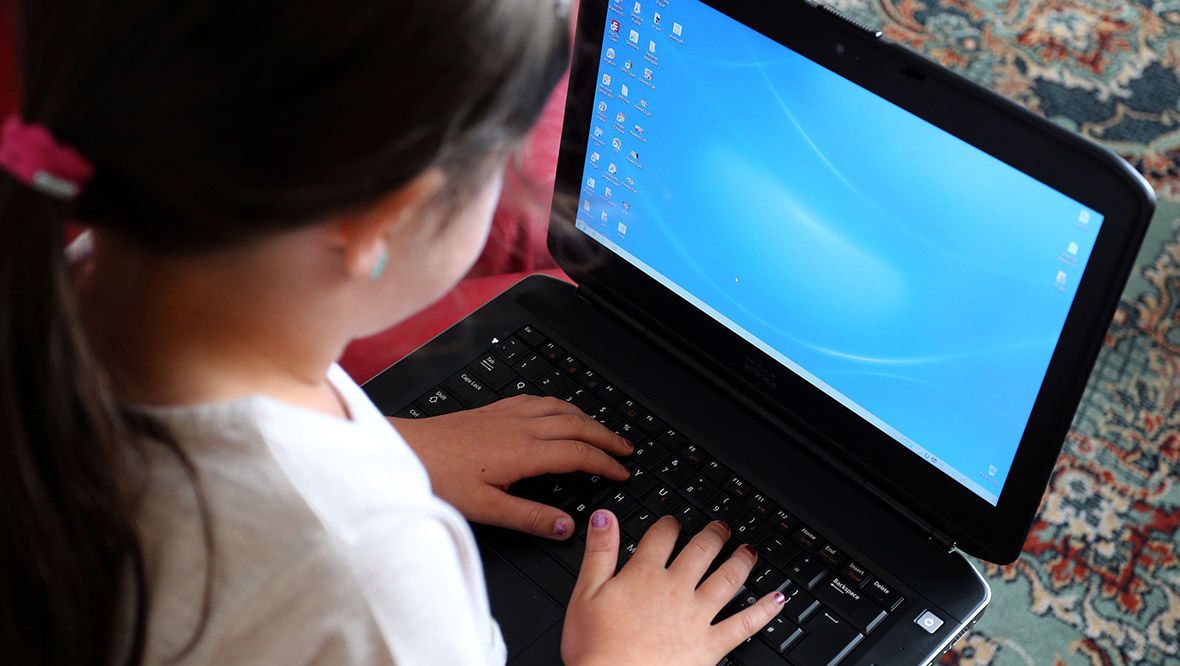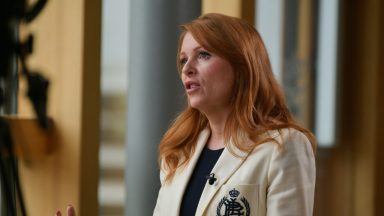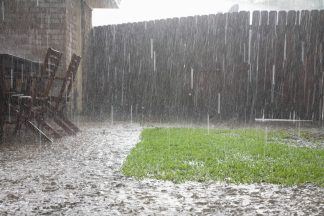More than 3,500 online grooming crimes against children have been recorded by Police Scotland since 2017, new figures from NSPCC reveal.
Figures obtained from Police Scotland showed there were 593 Communicating Indecently with a Child offences recorded last year (2022/23).
There were 1,873 offences against primary school children – with under-13s making up more than half of victims.
The new analysis of the scale of child sexual abuse taking place on social media comes ahead of MPs and Lords making final decisions on the Online Safety Bill next month.
The NSPCC first called for social media regulation to protect children from sexual abuse in 2017 and has been campaigning for legislation ever since.
The charity said the number of offences is likely to be far higher than those known to police.
In response, they are urging politicians on all sides to support the Bill in its final stages and pass this vital legislation.

‘I was petrified – like I was the only person in the world’
Aoife from East Kilbride, South Lanarkshire, was exploited online when she was 15 by an adult male who pretended to be a teenager. The man convinced her to send him images of herself and blackmailed her with these to control her behaviour.
When his demands became increasingly intense and frightening, Aoife plucked up the courage to tell her mum and teachers, who helped them to report it to the police.
Aoife, now 19, said: “When I found out I’d been talking to an older man I was petrified. I remember it was 3am and I was sitting in my room, just shaking. I felt like I was the only person in the world and started crying.
“I wanted my mum, and while she was just in the room next door I thought I couldn’t tell her because it’s so embarrassing, but all I wanted was a hug from her.”
A draft Online Safety Bill was published over two years ago but regulation was first promised by Government in 2018 following the NSPCC’s call for action and the launch of its Wild West Web campaign.
The charity has been campaigning for strong legislation ever since, working closely with survivors, Government, Parliamentarians, and other civil society groups to ensure it effectively tackles the way social media and gaming sites contribute to child sexual abuse.
The legislation will mean tech companies have a legal duty of care for young users and must assess their products for child abuse risks and put mitigations in place to protect children.
It will give the regulator Ofcom powers to address significant abuse taking place in private messaging and require companies to put safeguards in place to identify and disrupt abuse in end-to-end encrypted environments.
The NSPCC said these measures are vital to effectively protect children from the most insidious abuse and recent polling shows they are backed by more than seven in ten voters.
Online Safety Bill: Changes so far as Bill has passed through parliament
-
 Senior tech bosses will be held criminally liable for significant failures that put children at risk of sexual abuse and other harm.
Senior tech bosses will be held criminally liable for significant failures that put children at risk of sexual abuse and other harm. -
 Girls will be given specific protections as Ofcom will produce guidance on tackling Violence Against Women and Girls for companies to follow.
Girls will be given specific protections as Ofcom will produce guidance on tackling Violence Against Women and Girls for companies to follow. -
 Companies will have to crack down on so-called tribute pages and breadcrumbing that use legal but often stolen images of children and child accounts to form networks of offenders to facilitate child sexual abuse.
Companies will have to crack down on so-called tribute pages and breadcrumbing that use legal but often stolen images of children and child accounts to form networks of offenders to facilitate child sexual abuse. -
 Sites will have to consider how grooming pathways travel across various social media apps and games and work together to prevent abuse spreading across different platforms.
Sites will have to consider how grooming pathways travel across various social media apps and games and work together to prevent abuse spreading across different platforms.
Sir Peter Wanless, NSPCC Chief Executive said: “Today’s research highlights the sheer scale of child abuse happening on social media and the human cost of fundamentally unsafe products.
“The number of offences must serve as a reminder of why the Online Safety Bill is so important and why the ground-breaking protections it will give children are desperately needed.
“We’re pleased the Government has listened and strengthened the legislation so companies must tackle how their sites contribute to child sexual abuse in a tough but proportionate way, including in private messaging.
“It’s now up to tech firms, including those highlighted by these stark figures today, to make sure their current sites and future services do not put children at unacceptable risk of abuse.”NSPCC has helped shape significant gains for children
The NSPCC is still seeking assurances that the legislation will effectively regulate AI and immersive technology and wants an online child safety advocacy body specifically to speak with and for children as part of the day-to-day regulatory regime.
They argue that this will help spot emerging risks and fight for the interests and safety of children before tragedies arise.
A Scottish Government spokesperson said: “The Scottish Government is committed to securing the online safety of children and young people which is why the First Minister has urged the UK Government to amend the Online Safety Bill to include additional measures to protect children and vulnerable adults online and go further to encourage tech firms to design out illegal and harmful material.
“We are taking a range of actions to tackle online abuse, including funding organisations involved in safeguarding, preventing and responding to child sexual abuse and exploitation, raising awareness with parents and carers, and working with law enforcement partners to strengthen our response to this threat.”
Follow STV News on WhatsApp
Scan the QR code on your mobile device for all the latest news from around the country


 PA Media
PA Media




















